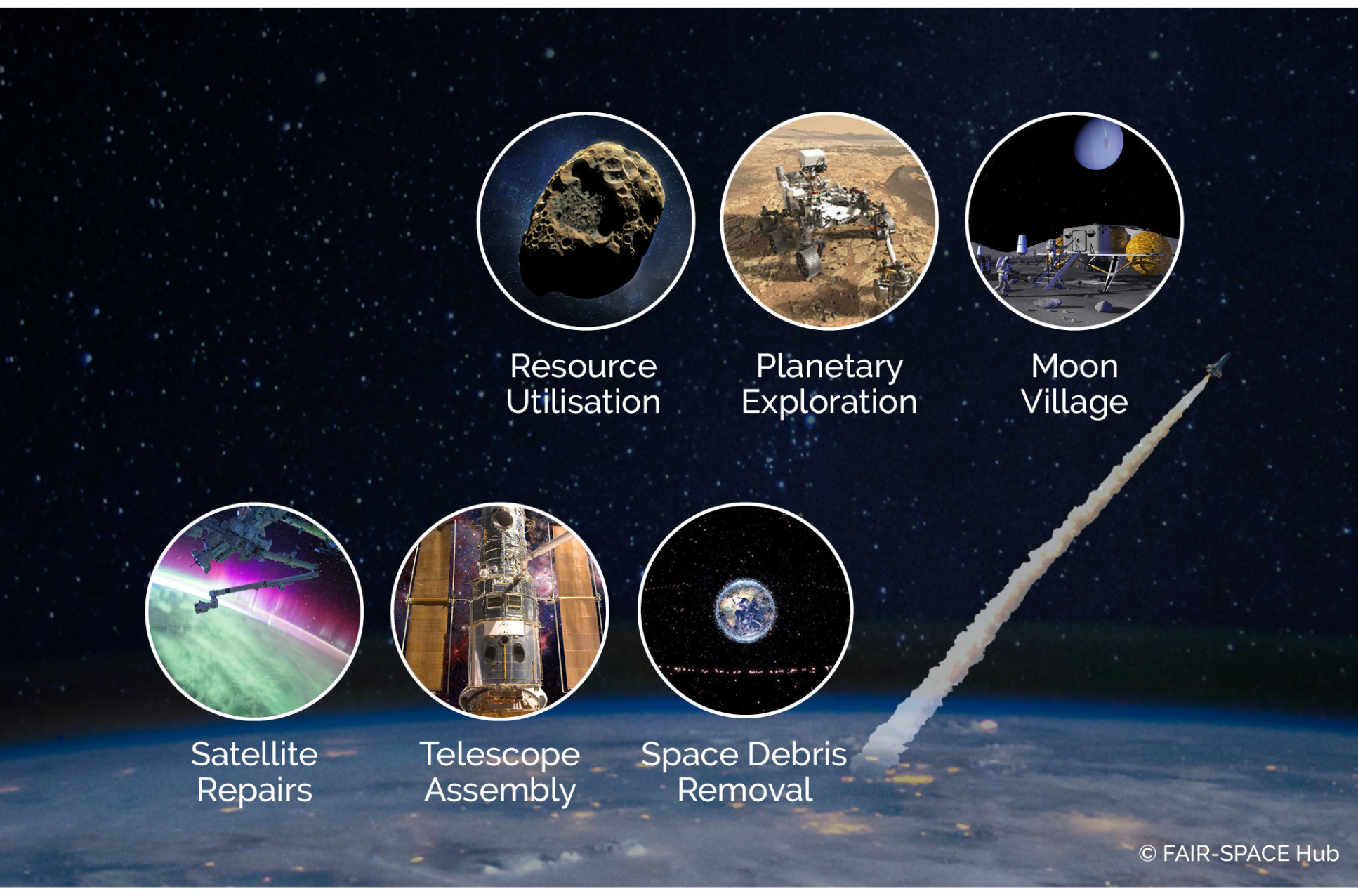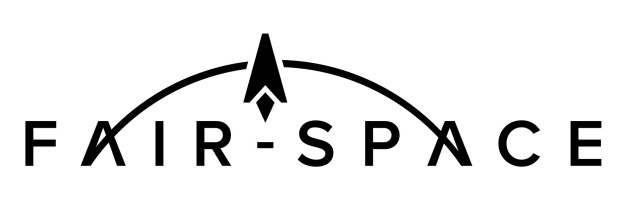
The FAIR-SPACE Hub is a UK national centre of research excellence in space robotics and AI. The Hub was launched in November 2017, as part of the government’s £84m R&D funding on “robotics and AI for extreme environments” through the Industry Strategic Challenge Fund (ISCF). In its initial 3-year programme, the Hub has secured a £7.95m research grant from UK Research and Innovation (UKRI) and the UK Space Agency (UKSA), boosted by a further £7.5m match fund from the industrial sector and a £15m business development fund.
Led by the University of Surrey with over 30 international partners, the FAIR-SPACE Hub consortium offers a unique combination of expertise and capabilities to address key challenges in space robotics and autonomous systems, as well as to influence and engage with the wider community of academia, industry, government and the public. Surrey draws on four decades of R&D heritage in spacecraft engineering to lead the FAIR-SPACE Hub. Home to the Surrey Space Centre, the University had successfully developed and launched the world first university-led micro and nano spacecraft in the 1970-1990’s, and has continued to lead future trends on space research through real-world demonstration missions. The Surrey STAR-Lab has contributed to national and international space robotics missions such as MoonLITE, Moonraker, Proba3, ExoMars and Chang’E-3. The university partners include Imperial College London, the University of Edinburgh, the University of Liverpool, the University of Salford and the University of Warwick.
While primarily aimed at solving the technical barriers faced by the global space sector, the technologies developed by FAIR-SPACE also have applications in other industries where there is a need to navigate hazardous or challenging environments, such as nuclear, underwater, mining and agriculture.
Contact Us
The Hamlyn Centre
Bessemer Building
South Kensington Campus
Imperial College
London, SW7 2AZ
Map location



